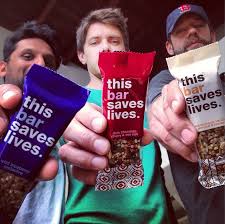Home
About Us
Behavioral Risk Factor Surveillance System
by: Michael SaundersThe Centers for Disease Control and Prevention, otherwise referred to as CDC, is a United States Federal government agency operating under the Department of Health and Human Services that is largely accountable for safeguarding public health and safety through the acquisition of additional information that could lead to the improvement of health-related decisions.
|
|
The initiatives of the CDC are constantly geared towards the realization of their agency mission which is "to create the expertise, information, and tools that people and communities need to protect their health – through health promotion, prevention of disease, injury and disability, and preparedness for new health threats."
In line with this mission, the Centers for Disease Control and Prevention has established the Behavioral Risk Factor Surveillance System Program wherein it intends to provide financial and programmatic assistance to State Health Departments in the process of maintaining and expanding ways of collecting pertinent health data.
The Behavioral Risk Factor Surveillance System Program is a health tool that is used to collate significant data regarding health-related threats and strategies that could help improve the health and wellness of the American people.
(continued...)
Behavioral Risk Factor Surveillance System
Page 2
About The Author
Michael Saunders is an editor of TopGovernmentGrants.com one the the most comprehensive Websites offering information on government grants and federal government programs. He also maintains Websites providing resources on artist grants and children grants. |
Additional Resources
category - Health Grants
Identifying Heart, Lung, and Blood Disease-Causing Variants
Funding Opportunity Announcement: Developing Sustainable Healthy Behaviors in Children and Adolescents
Exploratory Clinical Trials for Small Business Grant Program
Modeling Social Behavior Grant Program
Follow @topgovtgrant
Social Entrepreneurship
Spotlight
A Bar That Saves Children’s Lives

Ryan Devlin, Todd Grinnell and Ravi Patel have traveled to Africa on a humanitarian trip a few years back, encountering children suffering from severe malnutrition get healthy through Plumpy’Nut®.
